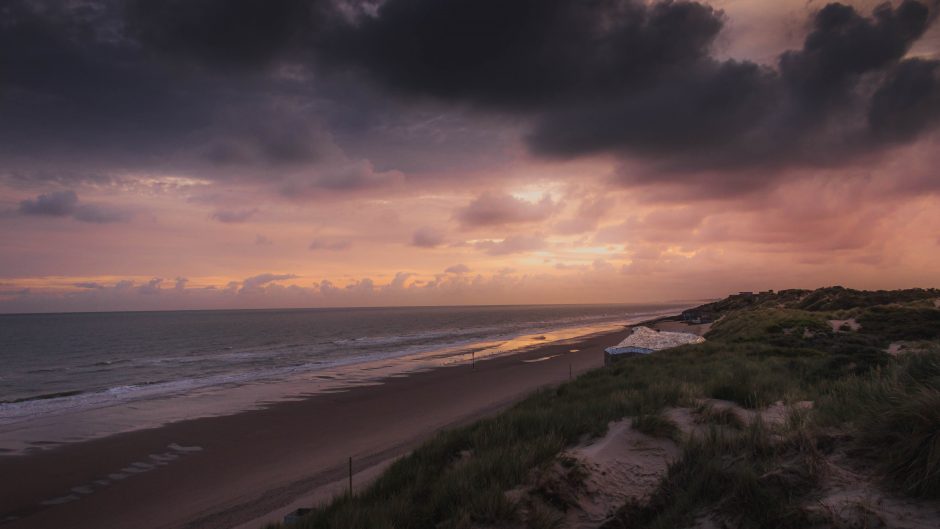May We Live in Hope: Spring 2023
“We shall fight on the beaches, we shall fight on the landing grounds, we shall fight in the fields and in the streets, we shall fight in the hills; we shall never surrender.”
These famous words were spoken by Winston Churchill on June 4, 1940—just after the evacuation of the British Expeditionary Forces from Dunkirk. When “Operation Dynamo” began on May 26, the expectation was that perhaps—if things went incredibly well—maybe 45,000 Allied forces might be saved. Instead, by some miracle, when the operation was completed, more than 338,000 Allied troops reached England, along with 26,000 French soldiers.
After this historic evacuation, Churchill stood before the House of Commons to report on it, and he concluded his speech with those famous and stirring words about fighting and never surrendering.
Most of us are familiar with those words. What most people don’t know is that, after saying them, Churchill sat down, and whispered to a colleague: “And we’ll fight them with the butt ends of broken beer bottles, because that’s bloody well all we’ve got.”
England was in a precarious position at that point in the war. After years of appeasement, the country wasn’t ready to defend itself yet— the military still needed time to manufacture supplies, a high percentage of the limited munitions they did have had just been lost at Dunkirk, and Britain desperately needed the support of other Allies, especially the United States. Yes, the evacuation from Dunkirk was wonderful, unexpected good news, but, as Churchill explained in his speech, “we must be very careful not to assign to this deliverance the attributes of a victory. Wars are not won by evacuations.”
So Churchill’s job that day wasn’t simply to give a rousing call to arms. Instead, his job was temper the mood of euphoria in the country following Dunkirk, and to remind people that there was much that still needed to be done, and that the road ahead would be hard and difficult and challenging—but that, despite all of that, there was still reason to hope. “I have,” he said, “full confidence that if all do their duty, if nothing is neglected, and if the best arrangements are made . . . we shall prove ourselves once again able to defend our Island home, to ride out the storm of war, and to outlive the menace of tyranny.” Which is, of course, exactly what happened.
I think of this because my sense is that many people today feel that Christianity is unrealistic, that it is all “pie-in-the-sky,” that it doesn’t understand or recognize that life is filled with difficulty, or challenges, or pain, or grief. To which I say: Nonsense. One of our doctrines as Christians, after all, is a recognition of what we call “The Fall,” or “Original Sin.” Which is simply another way of saying things like: the world isn’t as it should be; or, our relationships with God, with one another, and with ourselves are broken and imperfect; or, life is filled with challenges and pain and grief.
As Christians, we shouldn’t be afraid to recognize these hard truths and accept them. And—like Churchill in June of 1940—we should understand that to ignore these difficulties and challenges, or to pretend they don’t exist, is not faithful. Instead, it is willful denial, which is both dishonest and unhelpful.
G.K. Chesterton, another Englishman whose own brother died in WWI, wrote this: “Hope means hoping when things are hopeless, or it is no virtue at all.” May we face the challenges and difficulties of our own time squarely, honestly, and, in Churchill’s words, “with a steady eye.” And then, in the face of them, may we place our trust in God that all shall be well. In other words, may we live in hope.

Photo of Dunkirk France by Mathias Reding on Unsplash
















Chris Winfield, Inside Sales
in Profiles from SPDAsh Wednesday
in Life at St. PhilipAtheist Delusions
in What I'm ReadingThe Feast
in UncategorizedDomes, Epitaphs and Lasting Legacies
in Featured Reflections on the Life of FaithLent 2010: See
in Life at St. PhilipFirst Communion
in UncategorizedI Am Never Alone
in Uncategorized